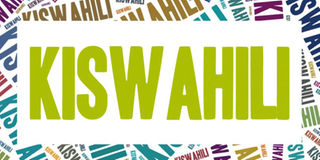Koreans push for Kiswahili, reading

What you need to know:
- The programme uses donated books which have been translated into Kiswahili at the Morogoro Regional Library.
- Koica volunteers say they saw it prudent to train Tanzanian children in Kiswahili because they have been having difficulties using books written in English.
Morogoro. In an endeavour to fight ignorance and build reading culture among Tanzanian children, the Korea International Cooperation Agency Korea (Koica) has come up with a programme dubbed Tanzania ya Kesho (Tanzania of Tomorrow), to train and motivate primary school children with regard to the utilisation of library services.
The programme uses donated books which have been translated into Kiswahili at the Morogoro Regional Library.
Koica volunteers say they saw it prudent to train Tanzanian children in Kiswahili because they have been having difficulties using books written in English.
“Every Friday and Saturday we have primary school pupils coming for this interesting programme. If these children understand reading, writing and counting properly—it will be easier for them to perfom well while persuing further studies in future and bring about positive changes in the development of this country,” said Koica lead facilitator, Ms Ja Young Lee yesterday, adding:
“Many books which have been donated for the children are in English while the majority have Kiswahili as medium of instruction in their schools.” Ms Lee, who is a volunteer librarian at Dodoma Regional Library, said they requested to translate some of the donated books available in libraries to enable children understand easily the contents of the books and familiarise them with use library services.
“Some didn’t like reading in libraries because the majority of the books were not user-friendly. So, we are creating an environment for them to like using library services, including computers, some of which have been programmed in Kiswahili,” she said.
For his part, Morogoro Regional Librarian Edward Fungo said children have received the training with genthusiasm.
“When we started we had very few children coming, not only for reading but also for training. But as we continued, we saw more and more coming and now we have over 40 of them,” he said.
One of the pupils, Ali Hassan, 9, from Mwere A Primary School, said he has benefited a lot for previously he didn’t know how to use library services because the language was so difficult.




